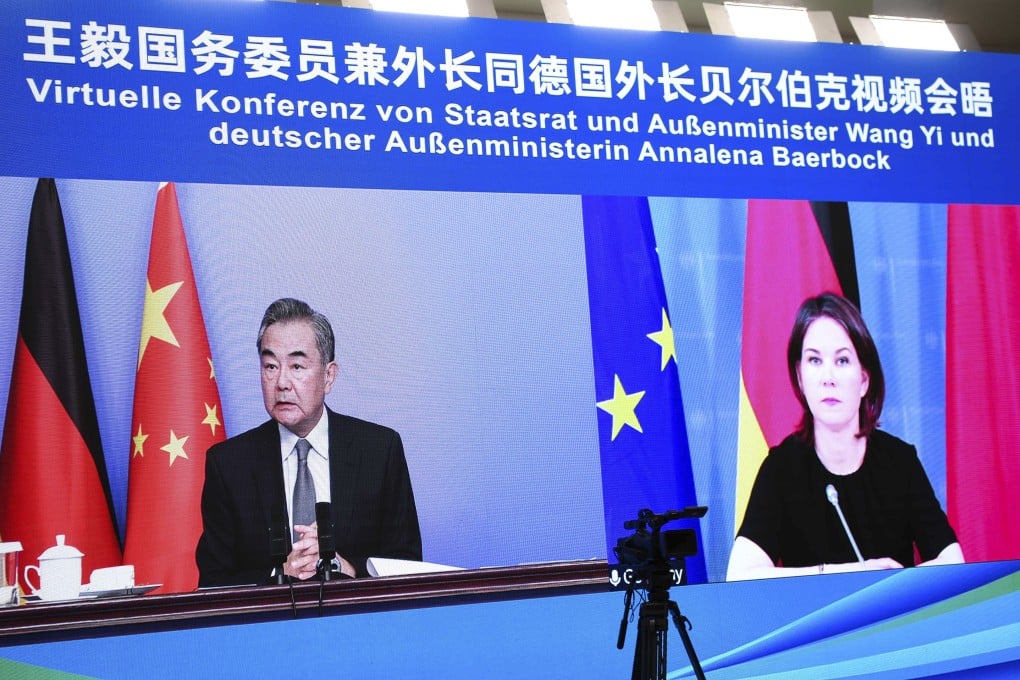Advertisement
China and Germany must cooperate to help stabilise the world against pandemic and economic woes: Wang Yi
- Chinese and German foreign ministers hold video conference but China’s account of meeting does not mention comments about Xinjiang leak or Ukraine war
- Chinese Foreign Minister Wang Yi says both countries are beneficiaries of globalisation and noise about decoupling is not in their interest
Reading Time:2 minutes
Why you can trust SCMP
21

Chinese Foreign Minister Wang Yi said Germany’s China policy under the new government should remain pragmatic and should further cooperation that brings “positive expectations” for the countries’ ties.
China and Germany should also strengthen their communication to bring stability to the world as Covid-19 raged and economic recovery remained weak, Wang told German Foreign Minister Annalena Baerbock, according to the Chinese foreign ministry statement about the video conference on Tuesday.
Wang said the two sides should make good use of the government consultation mechanism to improve bilateral relations.
The relatively new German government under Chancellor Olaf Scholz has described China as a “systemic rival” and has been more vocal in making its concerns over China’s human rights record known, mainly from Scholz’s coalition partners.
Advertisement
“China and Germany are both beneficiaries of and contributors to globalisation, and noise about decoupling is not in the interests of both sides and countries,” Wang was quoted as saying.
Wang also repeated China’s push for a world order based on the United Nations system and international law, a veiled reference to Chinese President Xi Jinping’s Global Security Initiative that targets what China sees as the West’s unilateral sanctions in the Ukraine war.
Advertisement
China would not be absent in matters of international concern, Wang said, reiterating China’s position that countries should push for a ceasefire in Ukraine.
Advertisement
Select Voice
Choose your listening speed
Get through articles 2x faster
1.25x
250 WPM
Slow
Average
Fast
1.25x
